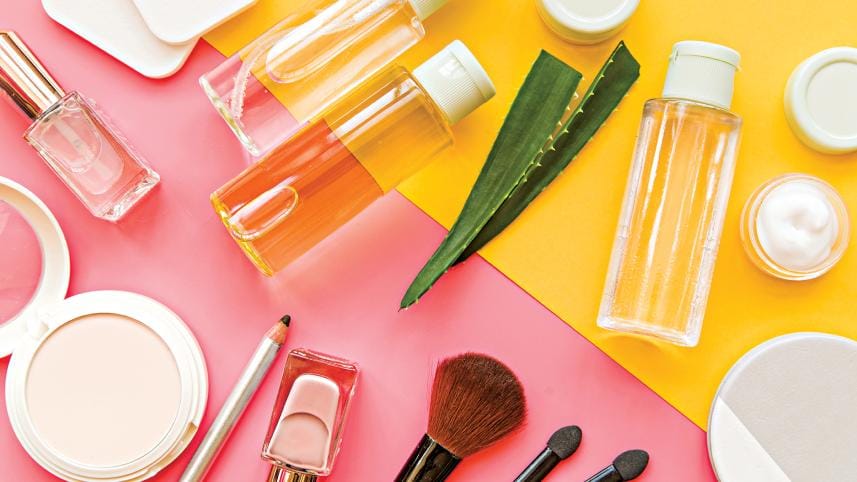Protecting skin in Dhaka’s extreme climate

Dhaka's residents now breathe some of the world's most polluted air, with PM2.5 often in the "hazardous" range (AQI 150–200). Even outdoors before dawn, masks are advised. This toxic smog isn't just a respiratory threat – dermatologists are seeing more flare-ups on city skin. Professor Dr Rashed Mohammad Khan, the former Head of the Department of Dermatology and Venereal Disease of Dhaka Medical College Hospital, notes that city dust and fumes literally "block our pores" and trigger breakouts. "Dust and sand pollution block our pores, causing acne breakouts." He even warns of surging eczema: "Atopic dermatitis is frequently occurring from this extra pollution and dry weather." In short, Dhaka's toxic air and heavy metals are straining the skin's defences.
Understanding the Skin Barrier
The skin's barrier is the outermost layer (stratum corneum) of our largest organ. It functions as an impenetrable barrier of dead cells and oils, retaining moisture and warding off potential threats. One vital function is "regulating water loss" while preventing microbes and pollutants from entering. As Dr Khan puts it plainly, "The outermost layer of the skin protects us from pollutants etc. from outside." In Dhaka's climate, preserving that shield is crucial. Fine smog particles, soot and chemicals can degrade lipids in the barrier, allowing water to escape and in turn causing dryness and irritants to penetrate. Similarly, harsh water or soaps can weaken the barrier, allowing pathogens and allergens to infiltrate. Keeping the "acid mantle" and the normal skin pH intact is part of this defence.

Pollution, Water and skin
Daily air pollution and hard tap water both stress skin health. Inhaled particles and exhaust gases can oxidise the fatty layers of the skin, weaken hydration, and promote inflammation. Dr Khan explains that street dust and sand literally clog pores, causing irritant dermatitis and acne as trapped oil leads to breakouts. Bangladeshi reports confirm this: villagers near polluted factories were found with chronic itching and rashes after waste contaminated their environment. Dermatology experts also note hard water can raise skin's pH and make it more prone to irritation. In practice, this means Dhaka's water is often full of minerals or chemicals and can leave skin feeling tight or flaky and may exacerbate acne by altering the skin's delicate balance.

"Processed foods and pollution raise inflammation and allergies; preserve your skin barrier with gentle care and daily broad-spectrum sunscreen of SPF50."
Daily Skincare Essentials
Experts stress the basics: a gentle cleanser, a proper moisturiser and daily sun protection. Dermatologists recommend a mild, pH-balanced face wash suited to your skin type. For example, an oil-cutting gel for oily skin or a hydrating creamy cleanser for dry skin. Dr Khan agrees that "a good cleanser and moisturiser is non-negotiable" for keeping the barrier strong. He advises one cleanse in the morning and one at night but stresses that too much washing is counterproductive.
Indeed, "over cleansing is extremely bad, and too much scrubbing of skin will strip away its essential oils." After cleansing, it is also important to apply a moisturiser to lock in hydration. In Dhaka's intense sun, Dr Khan recommends SPF50+ without fail. Also, never skip sunscreen or moisturiser in the name of "letting skin breathe", as doing so just encourages more oil production or dryness. It is important to give your skin a gentle routine: cleanse, hydrate and shield, and avoid overwashing or abrasive products.

Routines by Skin Type
Skincare should be tailored for oily, dry, and combination skin.
l Oily skin: Use a gentle gel or foaming cleanser morning and night. After washing, apply a light, gel-based moisturiser. In the morning, finish with a non-comedogenic SPF 50+ sunscreen to protect without clogging.
l Dry skin: Choose a creamy, non-foaming cleanser to avoid stripping oils. Pat skin (don't rub) and immediately layer it with a rich, emollient moisturiser. Ingredients like hyaluronic acid can draw in moisture, while ceramides help seal it in.
l Combination skin: A balanced approach works best. Use a gentle cleanser, then address zones separately: for example, apply a light gel moisturiser on the oily T-zone and a richer cream on dry cheeks. Always finish with daily SPF in all areas. The key is consistency: treating each area's needs without overdoing any one product.
When to Seek a Dermatologist
If issues continue despite effective home care, please consider seeking a professional evaluation. As Dr Khan advises, see a dermatologist if acne or dry patches don't improve after using a suitable cleanser and moisturiser. In practice, this means if persistent pimples, eczema or dermatitis won't clear with gentle, barrier-supporting care, it's time to get help. Also seek a doctor's advice for any severe rashes, infections, or allergic reactions. A specialist can prescribe targeted treatments and confirm that an "ordinary" breakout isn't something more serious. In short, if your skin won't recover with a gentle routine, or if it itches, cracks or scars badly, don't just hope it gets better on its own; you need to consult a dermatologist.
Protecting your skin barrier in Dhaka means being diligent every day. Simple habits like gentle cleansing, regular moisturising, and daily sun protection will go a long way. By avoiding scrubbing and harsh products and by heeding expert advice, Dhaka residents can help their skin defend against the city's harsh climate and pollution. And when in doubt, medical guidance is the safest route to healthy skin.




 For all latest news, follow The Daily Star's Google News channel.
For all latest news, follow The Daily Star's Google News channel.
Comments